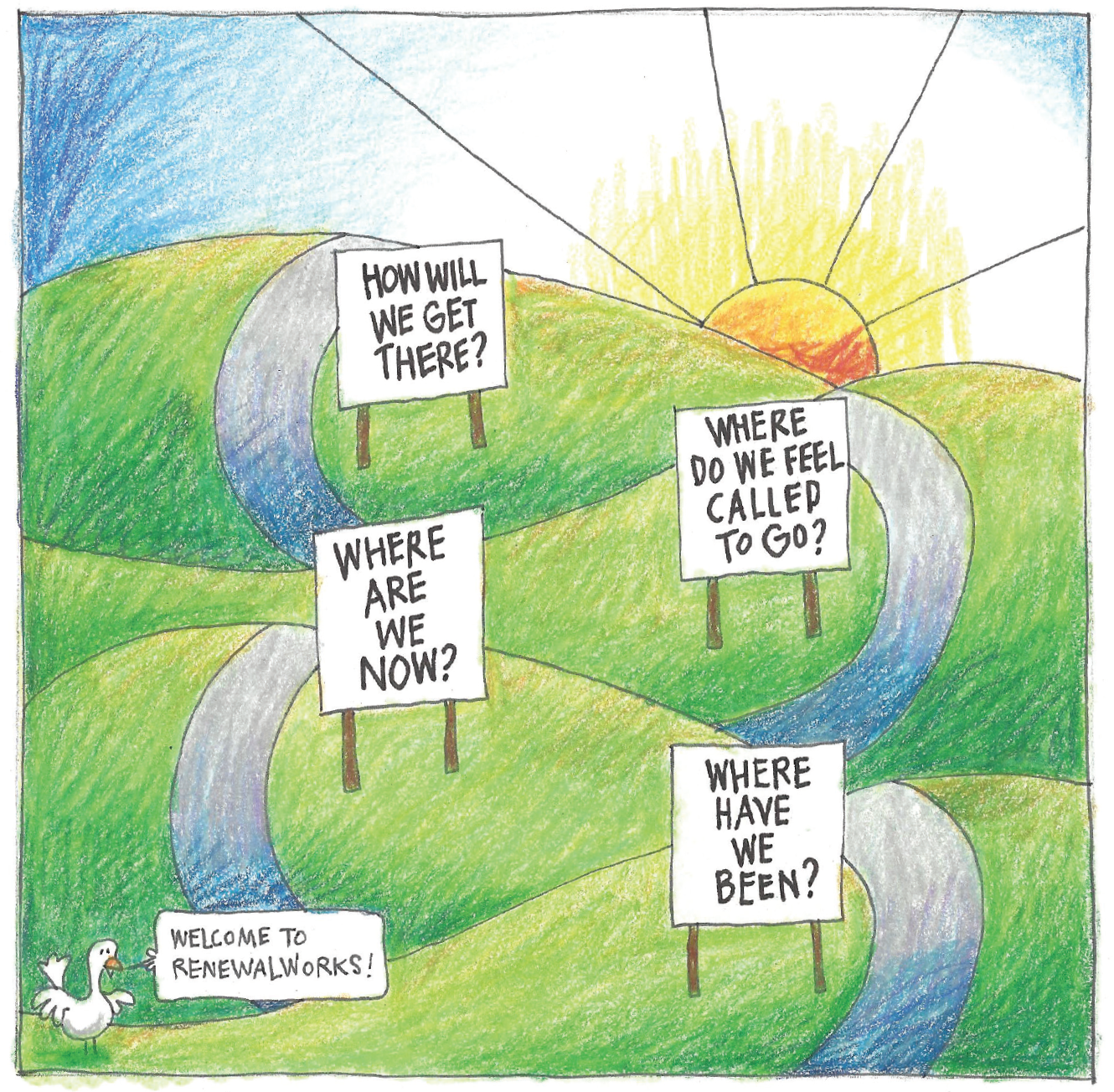
|
Empty phrases
In recent readings of Morning Prayer, a few words that I’ve read many times hit me like I’d never heard them before. Does that every happen to you? We begin the confession by saying: Most merciful God. I got to thinking about what it means to begin that liturgy, to begin my day, to live each day in the awareness of the presence of a merciful God. For much of the time, I’m a functional atheist, imagining I can bring God into the picture when I want, when needed. The rest of the time, I’ll run things, thank you very much.
My prayer life exhibits that interest in being in control. (Hear the gospel according to Anne Lamott: What’s the difference between you and God? God never thinks he’s you.) We sometimes approach prayer as filibuster, talking endlessly, repeating words somewhat mindlessly, not doing a lot of listening, thinking God will pay attention to us because we talk a lot or craft the language well. We sometimes approach prayer as shopping list, putting in our order like Doordash, waiting to have wishes fulfilled. God as valet. We sometimes approach prayer with magical thinking, a celestial Aladin’s lamp. Often we end up disappointed when wishes are not fulfilled. All of which is to say that there lots of ways for our prayers to be empty phrases.
Jesus spent a fair amount of time praying. He also spent a fair amount of time teaching about prayer, presumably because we need it. He was mindful that there are some ways to pray that are less edifying, some ways that we pray that are more about us than anything else, resulting again in prayers filled with empty phrases.
So how can we come to greater fullness, less emptiness in our prayers?
We can begin by keeping it simple, confident that we actually don’t have to clue God in to what’s going on. In my work in the church, people often feel incapable or unqualified to pray in front of others. That’s why clergy get called on to offer the prayer in a group setting. I found one simple way to get around that. It’s about filling in the blanks:
I thank God that….
I ask God that…
If you’re feeling stuck in your prayer life, you might want to see if this simple approach helps. Anybody can do it.
The call to simplicity in prayer is what I love about Anne Lamott’s description of what it means to pray. Echoing Jesus’ teaching in the Sermon on the Mount, she says you don’t need tons of words. In fact, you only need three: thanks, help and wow.
Thanks: Meister Eckhardt said that “if the only prayer you said was thank you, that would be enough.” Expressions of thanks in all circumstances place us in a frame of mind where we recognize God’s gracious activity in our lives, in our world. What are you thankful for this morning?
Help: It’s a matter of recognizing our absolute dependence, which is how Paul Tillich described faith. It’s the recognition that we can’t do it on our own, that our souls are restless until they find their rest in God. Where do you need help today?
Wow: We often fail to notice miracles around us. Here’s Anne Lamott’s take on it: “It’s sort of like when the Wizard of Oz — when Dorothy lands in Oz and the movie goes from black and white to color, and it’s like having a new pair of glasses, and you say, ‘Wow!’ So where’s the wow factor for you this Monday?
It can really be quite simple, however we pray. Our hearts can be moved into deeper relationship with God in silence, through music, with polished collects of the Prayer Book, with fumbling syntax, with sighs too deep for words, with tears as we consider the brokenness of our world. It’s all offered in the confidence, the amazing grace that a relationship with God is accessible and worth pursuing, and that God knows what we need before we ask. A bit more from Ms. Lamott: “If I were going to begin practicing the presence of God for the first time today, it would help to begin by admitting the three most terrible truths of our existence: that we are so ruined, and so loved, and in charge of so little.”
God aims to provide what we need, as loving parent. Let’s ditch empty phrases and the filibuster and the wish lists and aim to offer prayers with fullness and simplicity. And love.




